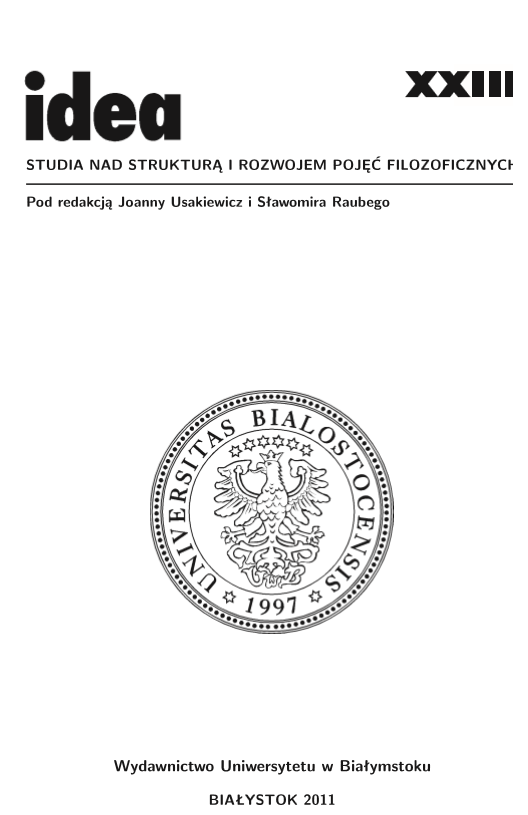Heidegger wobec kartezjańskiej koncepcji nauki nowożytnej
Heidegger on the Cartesian conception of modern science
Author(s): Eugen Andreansky, Milovan JesicSubject(s): Recent History (1900 till today), Hermeneutics, Ontology
Published by: Wydawnictwo Uniwersytetu w Białymstoku
Summary/Abstract: Heidegger’s analysis of modern science and especially Descartes’ philosophy drawn in 1930s represents a significant shift contrary to the theoretical research in his work called Being and Time. While the main problem in the most significant Heidegger’s work is the analysis of res extensa in Descartes’ philosophy, later in Modern Mathematical Natural Science and in Age of the World Picture the main problem turns to be a picture of Descartes as a methodologist. By this theoretical research Heidegger tends to lead us to the knowledge that only by deep immersion into the problems of The principle of Reason we can gain the knowledge or the intuition of what happens in modern science. Here we also can reach the turning-point of the history of human thinking – the unity of modern science and modern philosophy. Heidegger’s analysis of the famous Descartes’ quote cogito ergo sum leads to the conclusion that sum is not a result of thinking but vice versa it is a fundament, fundamentum. According to him this sentence includes the fact that it is I who put. I am the one who puts and thinks. This sentense is special because what it talks about – subiectum – is the one who puts. According to Heidegger the utterance expresses not only the fact that I, the one who puts, am but also that my putting decides about the reality of everyone putting, which means of his/her Being as being.
Journal: Idea. Studia nad strukturą i rozwojem pojęć filozoficznych
- Issue Year: 1/2011
- Issue No: XXIII
- Page Range: 101-113
- Page Count: 13
- Language: Polish

